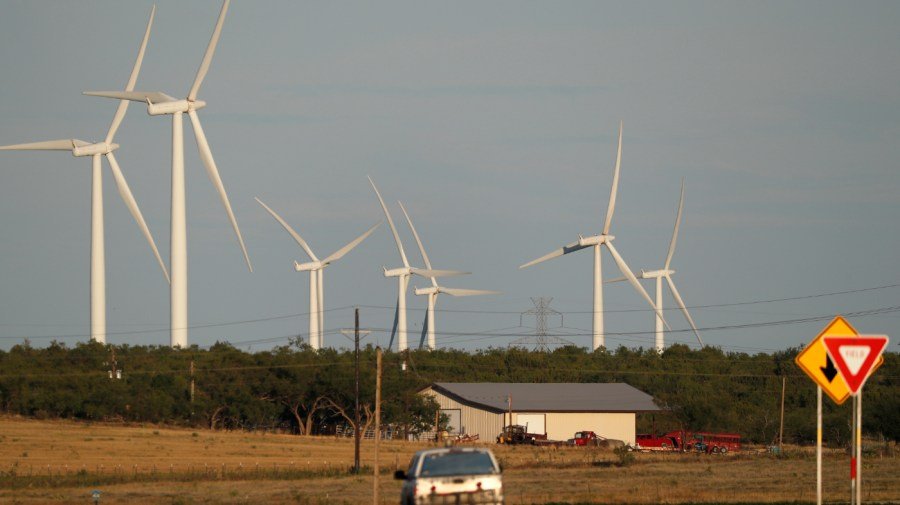Climate advocates are alarmed by President Trump’s return to the White House. But Republicans may hold the key to bridging the partisan gap on climate solutions.
Consider what’s happening in Republican states. The top three states for the number of new solar panel installations include not only California but also Republican-led Florida and Texas. The top three states generating wind energy are Texas, Iowa and Oklahoma.
In Wyoming, Republican Gov. Mark Gordon is promoting climate-friendly policies of wind, solar, and nuclear energy, alongside technologies to remove atmospheric carbon while generating coal-powered energy. And Republicans have been instrumental in utilizing the vast incentives for renewable energy from the Inflation Reduction Act of 2022, which have disproportionately benefited Republican states.
Our research shows that Republican leadership can reduce partisan divisions on climate change solutions more effectively than Democratic leadership.
Here is why: Democratic and Republican voters both take cues from their party’s political leaders. Although Democratic voters are somewhat less supportive of Republican-led climate solutions than Democratic-led solutions, they do not oppose them outright. Among Republican voters, however, Republican leadership can be transformative in driving support for solutions to climate change.
In a national experiment, we asked survey respondents to consider one of two climate policy proposals. One was a national cap and trade policy, like those that exist in several states. The other was a tax on carbon emissions like the one favored by economists from across the political spectrum.
We introduced a key experimental manipulation. Depending on random assignment, we told some people that Democratic members of Congress proposed the policy and that Republican members opposed it. For these people, 83 percent of Democratic survey respondents supported the policy but only 49 percent of Republicans did, a 34-point gap.
We told other people that Republican members of Congress proposed the same and that Democratic members opposed it. Now, Democratic support dipped to 68 percent while Republican support increased to 69 percent. The partisan divide on the specific proposal vanished.
In other words, our experiment shows that Republican leadership can depolarize climate policy. And such leadership may not be unrealistic.
In Congress, 18 Republican members wrote Speaker Mike Johnson (R-La.) last summer declaring their collective support for not repealing the clean energy tax credits in the Inflation Reduction Act. They stated the act has “spurred innovation, incentivized investment, and created good jobs in many parts of the country.”
Beyond support for these incentives, Republicans are also leading states in developing climate solutions. Gordon, for instance, spearheads the Western Governors’ Association’s “Decarbonizing the West” initiative. This coalition includes leaders from states such as California, Oregon, Colorado and Kansas. The approach features all-of-the-above strategies that can help Western states eliminate their total output of carbon emissions.
Decarbonization bills at the state level passed during the first Trump administration further support the idea that bipartisan action on climate solutions is possible.
A study by political scientists Renae Marshall and Matthew Burgess of 418 major state-level enacted decarbonization bills from 2015-2020 found that nearly one-third were passed in Republican-controlled legislatures, with half enjoying bipartisan co-sponsorship. Compare this to Democratic-controlled legislatures, where only 33 percent of climate bills had bipartisan support.
Republican-led bills emphasized incentives for renewable energy like wind and solar, while Democratic bills focused on mandates and standards to limit carbon emissions.
Depolarizing effects are not limited to politicians. Our research suggests that it can be depolarizing to learn that ordinary Republicans prioritize climate.
In one experiment, we told respondents that ordinary Democratic voters thought that the federal government should prioritize climate action over jobs, Medicare and infrastructure. In response, 96 percent of Democrats considered climate action a priority, while only 36 percent of Republicans did.
But when we instead told respondents that ordinary Republican voters prioritized climate action, 94 percent of Democrats and 61 percent of Republicans considered climate action a priority. The gap between Democratic and Republican priorities narrowed from 60 percent to 33 percent.
As with political leaders, grassroots efforts by conservative climate advocates are already happening. Groups like RepublicEn, ConservAmerica, and the American Conservation Coalition are rallying young conservatives behind market-based solutions, permitting reform and carbon sequestration.
They even have podcasts, which seem to be the medium of choice for changing the discourse in this country; podcasts such as EcoRight Speaks and Green Tea Party Radio are publicizing conservative support for climate action, advocating for broad energy strategies in addition to incentivizing utilities and energy producers to reduce their carbon emissions.
Climate policy has proven elusive, owing to deepening political divisions. But our research shows that Republican politicians and climate advocates have a unique opportunity to depolarize climate solutions. There is a way — is there a will?
Leaf Van Boven is a professor in the Department of Psychology and Neuroscience at the University of Colorado Boulder. David K. Sherman is a professor in the Department of Psychological and Brain Sciences at the University of California, Santa Barbara.


